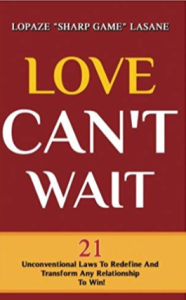Avoid These Common Pitfalls: What to Say (and Not Say) Online to Protect Your Reputation
Understanding What to Avoid Saying Online
In my experience researching what to avoid saying online, I’ve learned that the digital landscape can be tricky to navigate. Knowing what to avoid saying online is crucial because a single misstep can have lasting consequences for your reputation. From what I’ve discovered, many people underestimate how quickly words can be misinterpreted or blown out of proportion in the virtual world.
In my opinion, the key to online communication success is understanding what to avoid saying online in the first place. I want to share what I’ve learned through personal experiences and extensive research about the pitfalls that can damage our credibility and relationships online. Whether you’re posting on social media, commenting on forums, or engaging in professional networks, being mindful of what to avoid saying online can save you from unnecessary trouble.
Personal Experiences with What to Avoid Saying Online
In my journey to master online communication, I’ve encountered many situations where I wish I had known what to avoid saying online better. One time, I accidentally shared an opinion in a heated discussion that I later realized was too personal and misaligned with my professional image. That experience taught me the importance of filtering my words before posting — a crucial part of knowing what to avoid saying online.
From my research, I’ve found that many individuals overlook the potential impact of seemingly harmless comments. Personally, I recommend always considering how your words might be perceived by a broader audience. I believe that understanding what to avoid saying online can help us craft messages that protect and even enhance our reputation rather than harm it. My advice is to pause and reflect before hitting “send” on anything that could be misinterpreted or offend someone.
Common Mistakes and How to Avoid Them
Neglecting Privacy Boundaries
In my experience, one of the biggest mistakes I’ve seen is sharing too much personal information online. I’ve discovered that revealing details about my location, finances, or personal relationships can open doors to identity theft, stalking, or damage to my reputation. From what I’ve learned, I recommend always being cautious and asking myself if the information I’m about to share could be exploited.
When it comes to what to avoid saying online, oversharing is a common pitfall. I believe maintaining a boundary between what’s private and what’s public is essential. I advise setting strict privacy settings and being selective about what you post, especially on platforms where your content is visible to a wide audience. Remember, once something is online, it’s difficult to fully erase it.
Engaging in Controversial Topics
From my experience, diving into controversial topics without careful thought can backfire quickly. I’ve found that I need to be extra cautious about what to avoid saying online, especially when discussing politics, religion, or sensitive social issues. Personal opinions can easily offend or alienate others, and I’ve seen how a single provocative comment can spiral into a reputation-damaging dispute.
I recommend approaching these conversations with empathy and a clear understanding of what to avoid saying online. Sometimes, it’s better to remain silent or express opinions in private messages rather than public forums. My experience shows that sticking to respectful, neutral language helps avoid unnecessary conflicts and preserves my credibility.
Using Inappropriate Language
In my journey, I’ve realized that language matters more than I initially thought. I’ve discovered that using slang, offensive words, or unprofessional language can instantly tarnish my image. From what I’ve learned, I recommend always considering the context and audience before posting. When I’ve tried to be too casual or irreverent, I’ve noticed it sometimes backfires, especially in a professional setting.
In my opinion, what to avoid saying online includes profanity, insults, or sarcastic remarks that can be misunderstood. I believe that maintaining a respectful tone aligns with the idea of protecting your reputation online. I suggest reviewing your comments carefully and stepping back if you’re angry or upset—those are often the moments when I slip and say something I regret later.
How to Communicate Effectively Without Ruining Your Reputation
Choosing Words Carefully
Based on my experience, the simple act of choosing words wisely can make a huge difference in how I am perceived online. I’ve discovered that framing my messages positively and avoiding inflammatory language helps me maintain a professional and respectful image. I recommend taking a moment to think about what to avoid saying online and rephrasing if necessary.
From what I’ve learned, clear, respectful communication reduces misunderstandings and demonstrates maturity. I believe that if you’re unsure whether something might be offensive, it’s better to omit or reword it. My approach is to always ask myself whether my message adds value and aligns with my reputation goals.
Avoiding Negative Interactions
In my experience, I’ve found that engaging in petty arguments or responding defensively can quickly damage my online reputation. I’ve discovered that staying calm and professional, even when others are aggressive, is part of knowing what to avoid saying online. From my research, I recommend focusing on constructive dialogue rather than winning debates at all costs.
I believe that choosing to disengage from hostile conversations is often the best course of action. I’ve learned that it’s more productive to walk away from conflicts rather than escalate them. This approach not only protects my reputation but also shows maturity and emotional intelligence.
Resources and Further Reading on What to Avoid Saying Online
Throughout my research on what to avoid saying online, I’ve found these resources incredibly valuable. I recommend checking them out for additional insights:
Authoritative Sources on what to avoid saying online
-
FTC Consumer Guidance on Online Behavior
consumer.ftc.govThis resource provides essential tips on avoiding harmful online comments and protecting your reputation from scams and malicious content.
-
U.S. Department of Education: Online Conduct
ed.govA comprehensive guide on what to avoid saying online, especially tailored for students and educators to maintain professionalism.
-
Social Media Examiner: Managing Your Online Reputation
socialmediaexaminer.comThis article offers practical advice on what to avoid saying online and how to build a positive digital presence.
-
WHO Guidelines on Digital Etiquette
who.intAn authoritative publication on responsible communication and what to avoid saying online to foster respectful interactions.
-
Academic Journal on Online Discourse
researchgate.netProvides in-depth analysis on language use and what to avoid saying online to maintain professionalism and credibility.
-
New York Times: Common Social Media Mistakes
nytimes.comAn excellent resource highlighting typical errors about what to avoid saying online and how to prevent reputation damage.
Frequently Asked Questions
What are some examples of what to avoid saying online?
In my experience, what to avoid saying online includes offensive language, personal attacks, overly controversial opinions, or sharing private information. I’ve learned that even seemingly harmless comments can be misunderstood, so I recommend always thinking twice before posting.
How can I identify what to avoid saying online effectively?
From my perspective, the best way is to consider your audience, avoid inflammatory language, and think about how your words might be perceived. I recommend reading about digital etiquette and consulting trusted friends or colleagues before posting sensitive content.
Why is it important to know what to avoid saying online?
In my experience, understanding <a href="#INTERNAL_LINK_what to avoid saying online is vital because once something is online, it can be permanent and publicly accessible. I believe that being mindful helps protect your personal and professional reputation from avoidable damage.
What are some tips to avoid saying the wrong things online?
Based on my experience, I suggest always reviewing your posts, avoiding emotional reactions, and considering the potential impact before sharing. I also recommend staying informed about digital etiquette and keeping your communications respectful and clear.
Can I recover from saying the wrong thing online?
In my view, recovery is possible if you acknowledge your mistake, apologize sincerely, and demonstrate a commitment to better communication. I believe that understanding what to avoid saying online helps prevent such situations in the first place.
Conclusion
In conclusion, my research on what to avoid saying online has shown me that being cautious and intentional with my words is essential for maintaining a positive reputation. I hope this guide helps you understand the importance of recognizing common pitfalls and making wise communication choices. Based on my experience, knowing what to avoid saying online is a fundamental step toward protecting your digital presence and fostering respectful interactions. Remember, your online words can define how others perceive you—so choose them wisely.
Find out more information about “what to avoid saying online”
Search for more resources and information:








